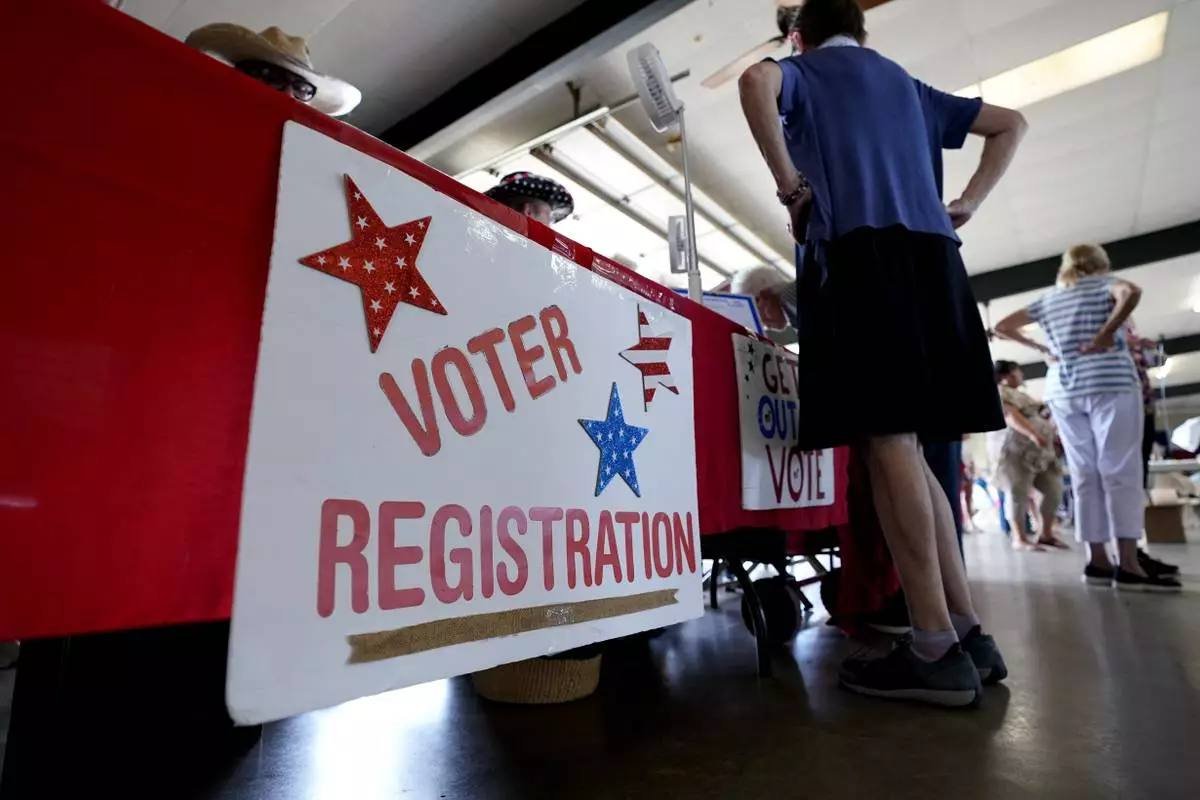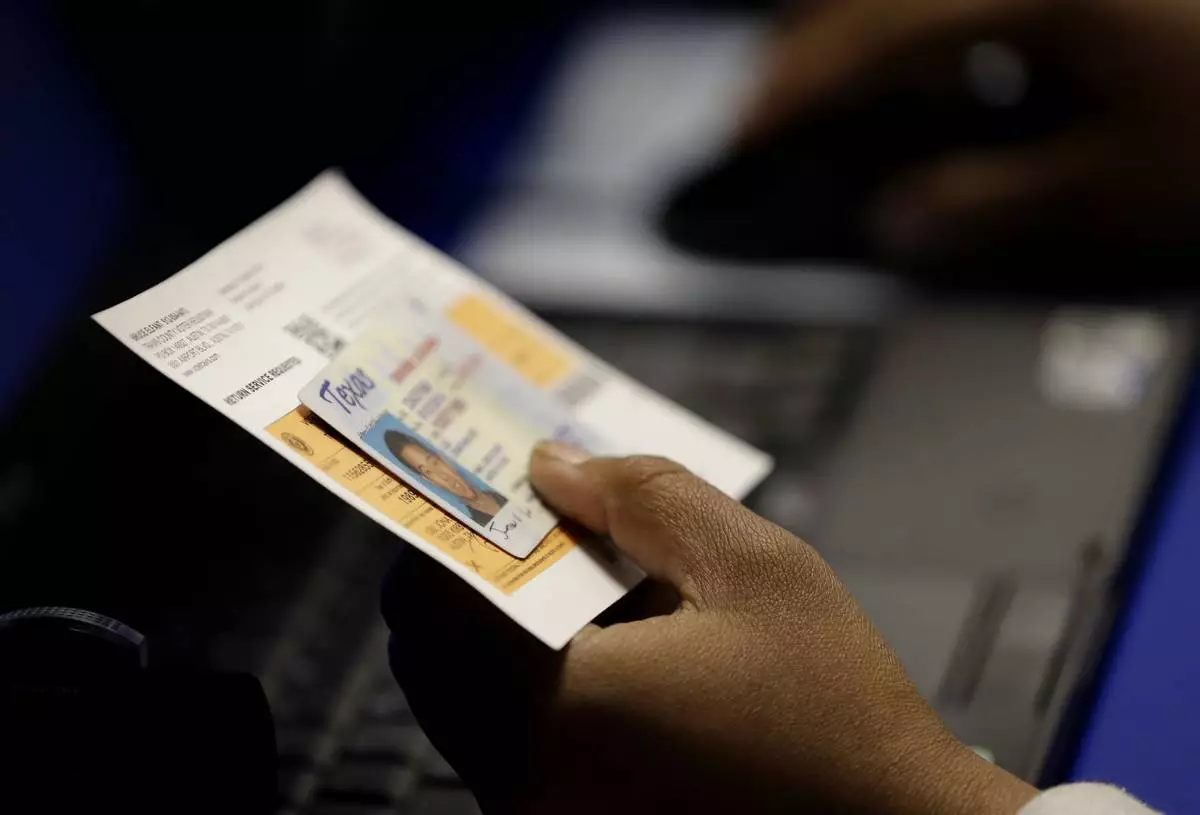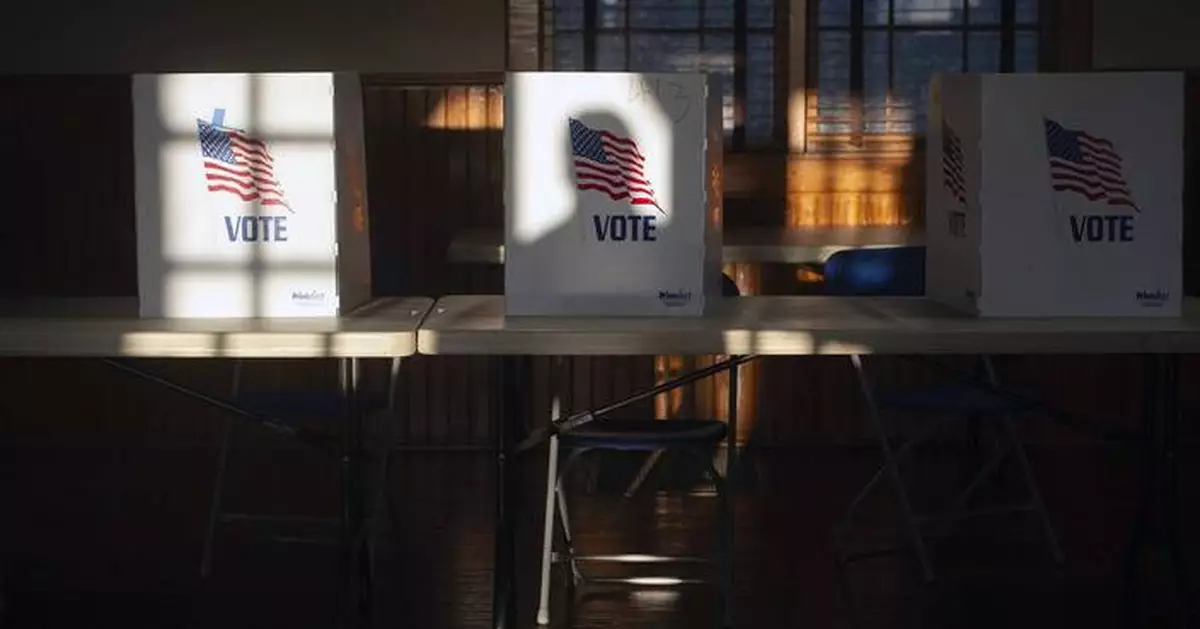So you want to cast a ballot on Election Day? Or maybe vote by mail? It helps to know the rules.
The federal government sets some basic standards: U.S. citizens age 18 or older are eligible to vote. But each state can adopt additional voting requirements and restrictions. For example, many states disqualify voters serving a prison sentence for felony crimes.
Many states also require people to register to vote in advance of Election Day, so poll workers can check names off a list when people show up to vote. The majority of states also ask voters to show some form of identification, so carrying an ID may be important.
Here's a look at some of the most common rules and requirements when it comes to casting a ballot.
The 26th Amendment to the Constitution sets the voting age at 18. You must be at least that old by Election Day, which this year is Nov. 5.
States may allow people to register to vote while age 17, or in some cases 16, so long as they turn 18 by Election Day.
A 1996 U.S. law makes it illegal for noncitizens to vote in elections for president or members of Congress. Violators can be fined and imprisoned for up to a year. They can also be deported. When people register to vote, they confirm under penalty of perjury that they are U.S. citizens.
No state constitutions explicitly allow noncitizens to vote. Many states have laws that prohibit noncitizens from voting for state offices such as governor or attorney general. There are ballot measures in several states this November asking voters whether to explicitly add such a prohibition to the state's constitution.
Some municipalities in California, Maryland and Vermont, as well as the District of Columbia, do allow voting by noncitizens in some local elections such as for school board and city council. In Arizona, voters must prove their citizenship to participate in local and state races.
North Dakota is the only state that does not require people to register to vote before casting a ballot. Elsewhere, people must register their names and addresses with election officials. That can be done in-person at state or local election offices or state motor vehicles offices. Many states also allow voter registrations to be mailed or submitted online.
About 20 states allow people to register on Election Day and then immediately cast a ballot.
The remaining states require some sort of advance registration, with deadlines ranging from three to 30 days before an election. Many of the states with voter registration deadlines more than two weeks ahead of the election are located in the South.
About three-quarters of states ask for identification from voters at the polls. Twenty-one states request a photo identification, such as a driver's license or government-issued card, according to the National Conference of State Legislatures. Fifteen additional states accept nonphoto identification, such as a utility bill or bank statement that lists a person's name and address.
If voters don't have identification, they may still be able to vote. In some states, voters can sign an affidavit of identity. In other states, they can cast a provisional ballot that is counted if election workers later verify their signature or if they return later with identification.
States that don't require proof of identify use other means to verify voters, such as signatures or asking for home addresses.
People voting absentee or by mail could face additional requirements, such as getting a witness to sign their absentee ballot envelope.
Federal law prohibits states from imposing a residency requirement longer than 30 days before an election. But it’s up to voters to designate the address where they reside.
Students who live in one state but attend college elsewhere typically have the choice of voting at their home address or college address. But they still must follow state identification requirements. Some states do not accept student IDs as identification.
In all jurisdictions except Maine, Vermont and the nation's capital, people convicted of felony crimes lose the right to vote while incarcerated.
In half the states, felony voting restrictions extend after incarceration, often including their time on probation or parole, according to the National Conference of State Legislatures. In some states, convicted felons lose their voting rights indefinitely for certain crimes.
Read more about how U.S. elections work at Explaining Election 2024, a series from The Associated Press aimed at helping make sense of the American democracy. The AP receives support from several private foundations to enhance its explanatory coverage of elections and democracy. See more about AP’s democracy initiative here. The AP is solely responsible for all content.

FILE - A voter marks a ballot for the midterm election at a polling site at the Roger Williams Park Botanical Center in Providence, R.I., Tuesday, Nov. 8, 2022. (AP Photo/David Goldman, File)

FILE - A voter registration table is seen at a political event for Texas gubernatorial candidate Beto O'Rourke, Wednesday, Aug. 17, 2022, in Fredericksburg, Texas. (AP Photo/Eric Gay, File)

FILE - An election official checks a voter's photo identification at an early voting polling site in Austin, Texas, Feb. 26, 2014. (AP Photo/Eric Gay, File)

FILE - The shadow of a voter entering the precinct at St. Joseph Catholic Church in Gluckstadt, Miss., is cast on a privacy divider for people filling out ballots at Precinct 205 at during the primary election on March 12, 2024. (Barbara Gauntt/The Clarion-Ledger via AP)













